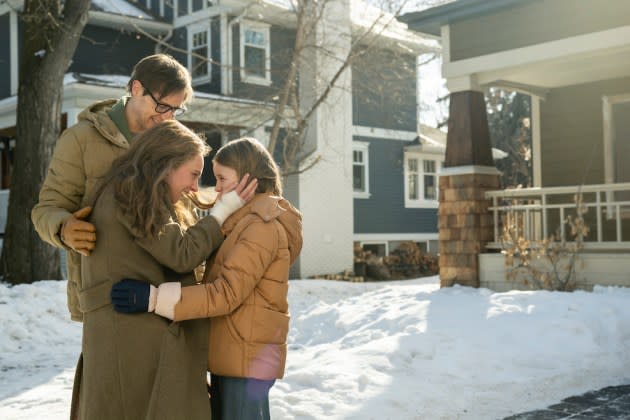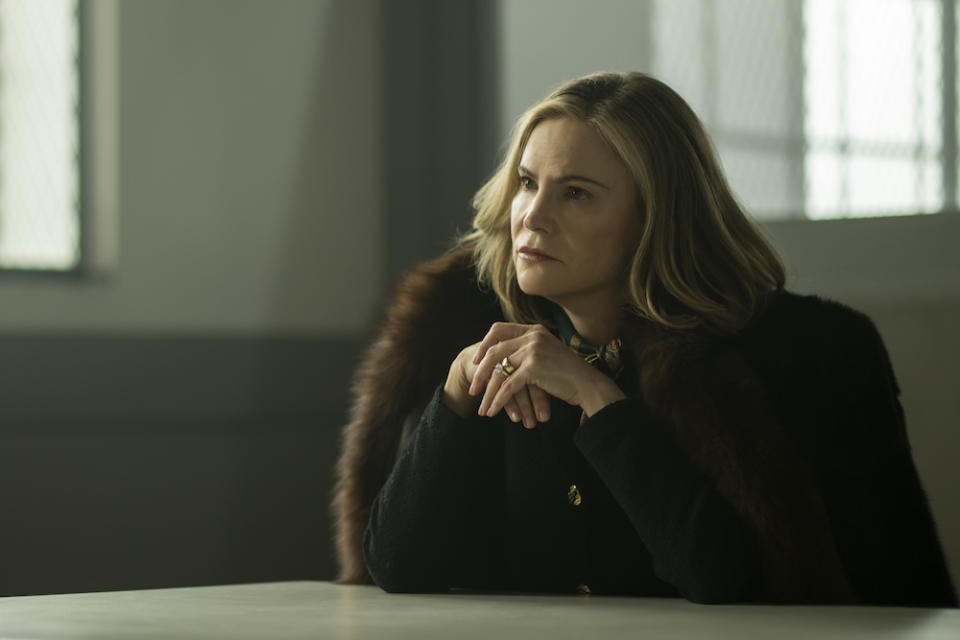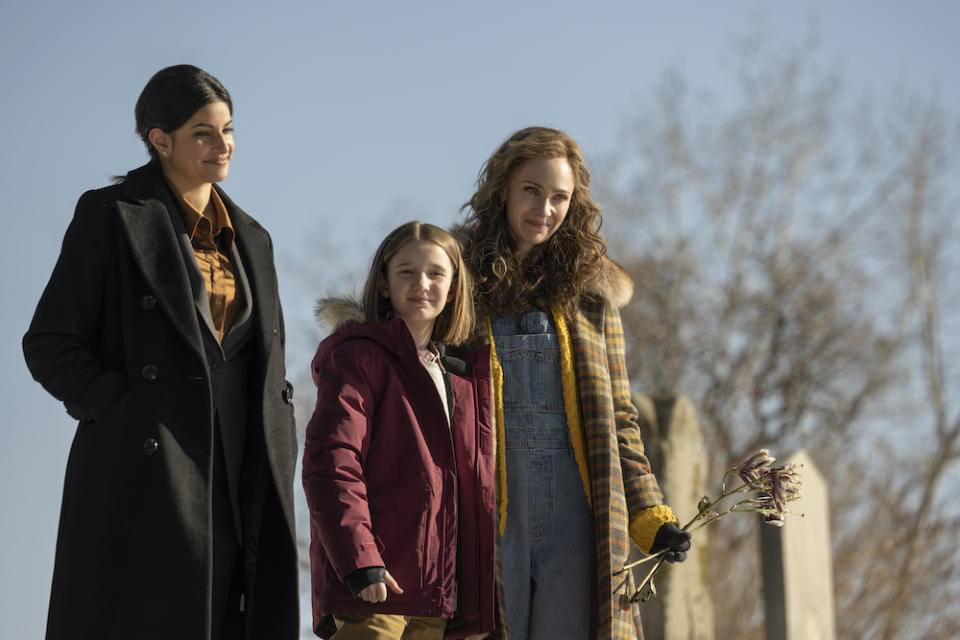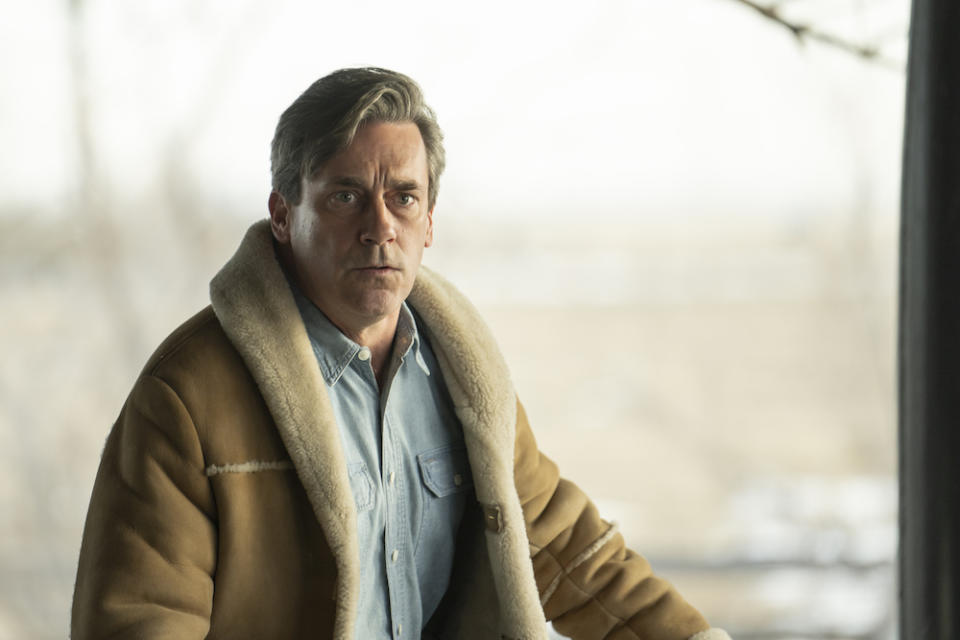Noah Hawley Breaks Down ‘Fargo’ Season 5 Finale and Which Season Almost Had Its Own Spinoff

SPOILER ALERT: This story contains spoilers for Season 5, Episode 10 of “Fargo,” now airing on FX and streaming on Hulu.
While the events of Noah Hawley’s FX series “Fargo” don’t expand on those in the 1996 film from Joel and Ethan Coen, there is one bit of dialogue from the movie that Hawley considers a thematic throughline for each season in the anthology.
More from Variety
“There’s always something every year that’s rooted in Marge’s line from the movie, ‘And here you are, and for what, a little bit of money?’ — the crimes that people commit for money, either desperation or greed,” he said. “This year, I wanted to look at debt, which is something so many Americans suffer from and really defines people’s lives, but isn’t usually dealt with in our fictionalized dramas.”

Though monetary debt plays a big role in the plot, with Jennifer Jason Leigh playing the CEO of the nation’s largest debt collection agency, the season is more focused on what debt represents as a concept: the question of what we owe each other. And by the season finale, most characters — with the exception of Witt Farr’s (Lamorne Morris) unfortunate death — get what they’re due. Dot (Juno Temple) makes it home safely to her family, and escapes her abusive ex-husband Roy Tillman (Jon Hamm), who is then locked in prison.
But in the nature of “Fargo,” things do not wrap up quite so neatly. A year later, Sam Spruell’s Ole Munch — the sin eater — makes a visit to Dot’s home, seemingly for vengeance. The final minutes of the episode contain a tense conversation between Munch and Dot, the latter of whom insists that debt does not always have to be repaid, but can instead be forgiven.
In an interview, Hawley spoke with Variety to break down that final scene and the season as a whole, and discussed his approach to telling a story about domestic violence, and how he was influenced by his mother, the feminist writer Louise Armstrong. Hawley also answered the question of whether “Fargo” can go on forever.
This is the most contemporary season of “Fargo” so far. Lorraine even makes a reference to “the orange idiot” at one point. How did you decide on the 2019 setting, and how does that tie into the themes of this season?
I wanted it to be as contemporary as possible without getting into the pandemic, just because that’s its own white whale of a story. Since it says it’s a true story, it has to be long enough in the past that the first book could have been written about the true crime. 2019 felt still very contemporary, and surprisingly relevant in terms of America. We start with this school board melee, which feels like a very active conversation we’re having these days as well.

The theme of debt is present throughout the season, but made especially clear in the final scene. How did you land on that being the central theme of the season?
We’ve established this idea that people who don’t repay their debts are somehow bad people. But it also has this Kafkaesque quality, because if you take a student loan, that thing takes like 20 or 30 years to repay, and not everyone can repay it. If you fail to repay it, then society calls you immoral, and if you succeed, then you’re a moral person. But for those 20 years, you’re hanging in this limbo where you’re both moral and immoral, because it’s not clear yet what’s going to happen — which feels like a very Coen brothers state of being.
And then, of course, there’s the things we owe each other in a society, and the question of, “What does a wife owe to a husband who beats her and who escapes from him?” Roy comes after Dot saying, “You made promises before God to me, and you broke your vows,” and she says, “Well, you broke my collarbone and my fingers.” And what does a son owe to a mother who was cold to him? Just these ideas of human obligation and debts to each other also felt really relevant in a “Fargo” story.
Talk to me about Sam Spruell’s big scene at the end and his conversation with Dot about repaying versus forgiving debt. Why did you choose to end the season there?
Where it ended up for me was struggling with this question that a lot of us are struggling with, which is how are we going to get past this polarization and this sense of mutual injury? I landed on the idea of forgiveness, which Dot is saying to Munch, “Look, you took a job, and the job had risk and you can’t be mad at the risk. I was just trying to save my life so I could be a mother to my children.” They reach this place, and it’s a very tense back and forth over many minutes as to whether he’s going to harm this family or she’s going to win out. And in the end, she wins out, because she tells him that there’s forgiveness there for him and that he feels dirty because all he’s been doing is sinning for a long time, and now all he feels is the sin. She says, “Well, yes, we can be made to feel that way. But the only way to move past this is you gotta forgive yourself and be forgiving.”
Assuming Ole Munch leaves after having dinner with the Lyons, is this chapter over for Dot?
I think so. What made the movie so impactful and the reason that I couldn’t make a television series out of “Fargo” was at the end of the movie, Marge saw the weirdest, most disturbing case she will ever see, and tomorrow’s a normal day. If she’d woken up the next day and there’d been another crazy Coen brothers story, we couldn’t even call it a true story.
This story that we’ve told about Dot, this is the biggest story of her life. When we finished the second season of “Fargo,” Warren Littlefield came to me and said, “I think there’s a show in Patrick Wilson. I think there’s a show in Lou Solverson, and you created this amazing cast of characters around him.” And I was like, “I know, but I just can’t. It wouldn’t be ‘Fargo.'” We couldn’t say it’s a true story. It would be a fictionalized adventures of Lou Solverson.
And as much as I would love that show, that’s not what the exercise is. All of these are standalone stories, at the end of which, for whoever is still alive, life gets a little more normal.
Why was it important to have that time jump in the finale?
I felt like the action of the story had ended, and we were in the denouement of this story. You need to see where people have ended up a bit. You need Jon Hamm to be convicted in prison, and Jennifer Jason Leigh to visit him. He’s been lulled into a false sense that this is as bad as it’s gonna get. And for Juno, you really need that year to have gone by so that she has totally relaxed her guard. She thinks, “Well, that’s over,” and then she comes home and Munch is sitting in the house. It’s so much more impactful than if it was just a week later, because you know that she would still have electric wires on the windows.
You mentioned that scene between Lorraine and Roy. I feel like there’s a big distinction between that scene and the one with Gator and Dot. Dot was so forgiving of Gator for what he’s done, while Roy is about to get the debt he owes repaid to him. How did these scenes fit in with Dot and Ole Munch’s conversation about forgiving versus repaying debt?
I feel like the tragedy of Gator is not just what happens to him in the end of his story. The tragedy is he had an abusive father, but he was so desperate for his father’s love that he tried to become the man his father was. But there was nothing you could do that would ever make his father love him or respect him. We saw in the puppet show, which are words that I love saying, there was a moment when the Roy puppet was beating the Linda puppet that little Gator came in and put his head in Dot’s lap. He was just a child once, and I think that Dot’s real power was in her ability to be kind. You saw it with Lamorne’s character in the first hour in the gas station. She was decent to him. She patched him up. She took care of him. With Gator, there’s still somebody decent in there. She can see it, and they shared this history together. He has been devastated and abandoned and blinded and all the things, and so she just chooses to be kind to him, even though he was part of the trauma that she suffered. But there’s no way we’re gonna get past it unless we can forgive and make amends.

Given that this season centers on domestic violence, what was your approach to handling this topic sensitively while maintaining the dark humor and tone “Fargo” is known for?
It’s a very challenging thing to take on. I grew up in a household with a mother who wrote books on family domestic violence and childhood sexual abuse. I spent my childhood sharing meals with the incest survivors who came to tell their stories, the Andrea Dworkins and Susan Brownmillers and those folks, so this was always a very personal story to me in terms of understanding the real obligation to tell these stories. But also understanding that in telling the story, I didn’t want to create fresh injuries.
We have a trigger warning on a couple of the hours. I think the best way to exemplify it is a moment in the eighth hour where Roy has been humiliated at the debates. He comes home, and Karen, his current wife, she does this Lady Macbeth in his ear because she knows that he’s going to become violent. She makes the choice to wind him up and send him towards Dot, versus to let him into the house with her and her own girls. She winds him up, and he does this long walk and gets to the place where he’s holding her captive, and he goes in and beats her. Then she turns the tables, and they have this fight. I don’t show you the abuse, but I do show you the fight, because we know what’s going to happen in that room. To know it and then to be forced to watch it feels aggressive to the audience. It is unfortunately a part of the story that he goes in there and beats her. My responsibility is to tell you that story without traumatizing you as much as I can, because what’s the value of seeing it? We know it’s happening. We hear it, even. It’s awful enough. But then the moment that it becomes a fight, now you want to see it, now that drama — is she going to get away? Is she going to kill him like she promised?
And then again, as you said, there’s a tone of voice issue, right? We can’t be farcical, and we can’t be so awful that it kills whatever comedy that can exist in the story for people. That’s the other line to walk, which is if I make it too awful, then you’re going to get mad at me, you’re going to feel like I’m making fun of the story when there’s comedy later on in the episode. It is a fine line to walk, and my hope is that I managed to succeed cinematically, and as a storyteller in doing it. But I certainly know that some people will feel I did and some people will feel I didn’t.
Who would you love to see in the “Fargo” world? And do you think that there’s an infinite number of “Fargo” stories to tell, or will the universe have to end eventually?
I think it’ll have to end eventually. My hope is that I have at least the presence of mind to know when I’ve overstayed my welcome. I thought it was helpful to set the fourth season in Kansas City and get away from the accent for a year to say that just as the Coens made “No Country for Old Men,” we can tell stories outside of the upper Midwest that still feel like “Fargo” stories. But I think the accent can run its course for people if you just keep doing it, it begins to feel a bit like a caricature.
There’s so many amazing actors I could see in this world, but it really depends. I create these stories and these characters, and it’s only when there’s a script or two written that I start to really think about who could play them. I don’t even have a list in mind, but there’s certainly a lot of actors who were in that [Golden Globes] room last night who I look forward to working with.
Looking ahead now, have you restarted production on “Alien” yet?
We’re going to restart very soon. Everyone’s getting on planes as soon as this awards season is over. I’ll be getting my eye mask out and getting on those long planes around the world. We’ll blow the dust off the sets from last year, and get going.
Since there’s an “Alien” movie coming out in August, have you connected with its director Fede Alvarez at all?
I haven’t talked to Fede, but I’m super excited to see what he did. I heard about the film, and it sounds like a nail biter for sure.
This interview has been edited and condensed.
Best of Variety
From 'Killers of the Flower Moon' to 'Eileen': The Best Book-to-Screen Adaptations to Read This Year
The Best 'Sopranos' Merch to Celebrate the Show's 25th Anniversary
Sign up for Variety’s Newsletter. For the latest news, follow us on Facebook, Twitter, and Instagram.


